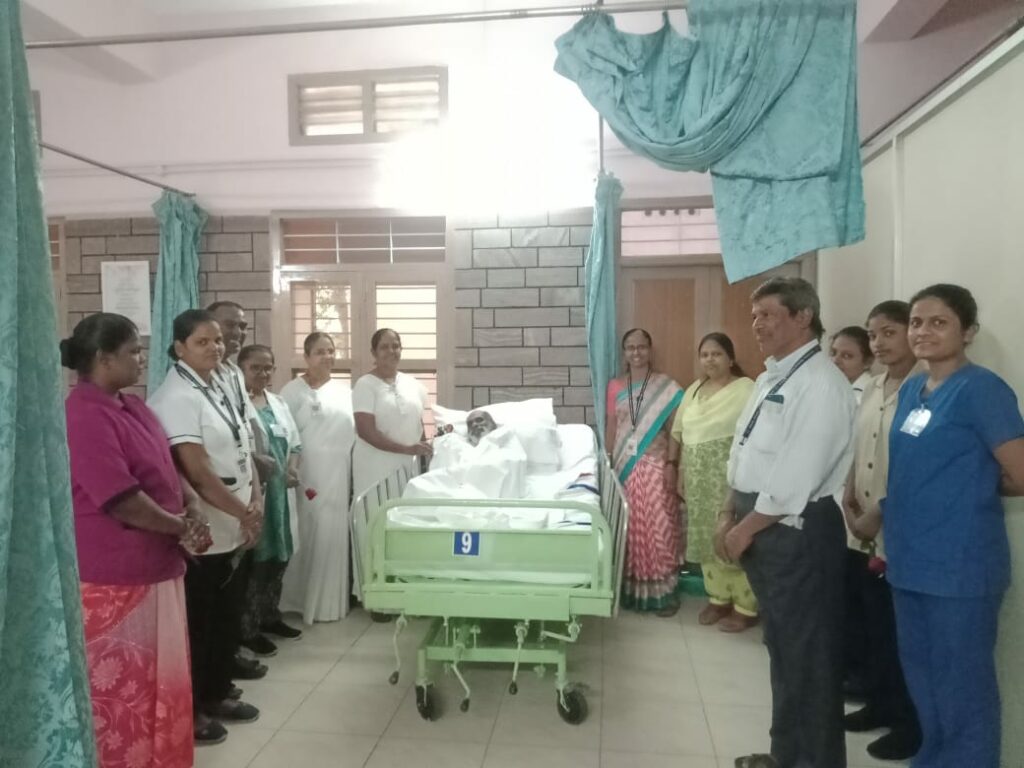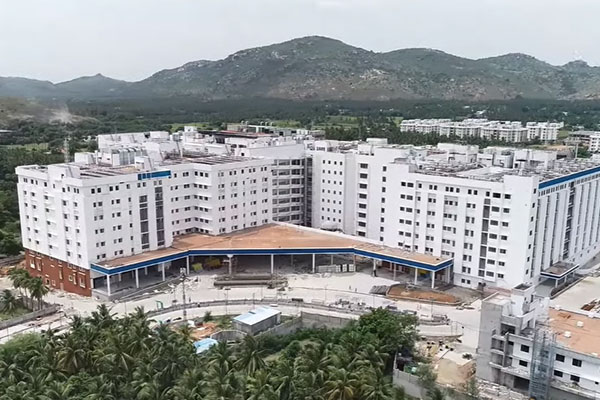The 15-bed Ida B. Scudder Hospice in Snehadeepam cares for terminally ill and marginalised patients.
Kamu* shuffled into the Palliative Medicine outpatient clinic one afternoon. The weight of 88 years hunched his shoulders, and the tell-tale deformities in his hands and feet spoke of a past battle with leprosy. A recent diagnosis – a probable malignancy gnawing at his insides – was another cruel twist of fate in the twilight years of his life. Pain, a relentless throb in his hips, and the indignity of leaking bowels were his primary concerns. The scars etched in his life by the contempt of his own kin who refused to touch him were so profound he even refused a detailed clinical examination by the doctor. He clutched a solitary hundred-rupee note – merely enough for the journey back and his dinner for the day. Our team offered him free medication and diapers. Yet, he refused the diapers. “These hands,” he rasped, his voice rough with disuse, “cannot hold anything anymore.

Overwhelmed by his predicament, we decided to act. We found he lived in a desolate bus shelter with flies buzzing around him. We got in touch with his only contactable relative and brought Kamu to the hospital to manage his symptoms. It was then that a beacon of hope emerged – the reopening of the hospice on the Snehadeepam campus. Kamu was the first patient admitted in 2024 to the recently dedicated Ida B Scudder Hospice.’

The hospice is a haven. More than just food, shelter, and clean clothes, it is the caring touch, gentle and unhurried, on his calloused figure. Kamu joined the staff in prayers, tears of gratitude glistening in his eyes. “I found God here,” he whispered, his voice thick with emotion. He lived with dignity, his choices – be it food or conversation – respected. For about two months, he was free from suffering, a weight finally lifted from his weary shoulders.
Your generosity can bring hope and dignity to a deserving person today. A gift of ₹10,000 can cover a week’s bed and nursing (professional) charges for a patient.


